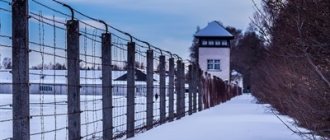Home / Complaints, courts, consumer rights
Back
Published: November 20, 2018
Reading time: 6 min
0
844
To carry out public photography on the territory of the Russian Federation, you do not need to obtain permission, but civil legislation establishes a ban on photographing the private life of individuals without their permission.
- When can you take photographs without permission?
- When not to take photographs without consent
- Consent form
- Responsibility
The admissibility of photography in each case depends on the purpose and key objects of the images.
Basic Filming Laws
There is no specific law in the regulatory framework of the Russian Federation on the prohibition or permission of photography or video filming in shopping centers or other places accessible to public visits or public places.
Such actions are partially regulated by the following acts:
- Constitution of the Russian Federation. This document establishes freedom of the media. As a result, citizens of the Russian Federation (if they are vested with the appropriate powers under the Federal Law on the Media or when it comes to freedom of access to information) receive the necessary information by legal methods, subject to compliance with the requirements established by federal laws;
- Federal Law No. 51 of November 30, 1994 (Civil Code of the Russian Federation). This law specifies several rules on video recording of individuals - citizens of the Russian Federation;
- Federal Law No. 149 of July 27, 2006 “On Information”. This law provides the basic rules and prohibitions for video recording of individuals and employees in various public places (shopping malls, parks, etc.);
- Decree of the President of the Russian Federation No. 1203 of November 30, 1995 “On state secrets.” According to this document, the work of all officials and civil servants is based on the principles of openness, except for the disclosure of state secrets;
- Federal Law No. 2300-1 of February 7, 1992. According to this law, which allows video recording, consumers have the right to freely obtain specific information about manufacturers and the goods they offer.
- Federal Law-152 “On Personal Data” dated July 27, 2006, which protects and does not allow the free collection, storage and processing of any data that in one way or another relates to the identity of a specific person, including biometric parameters, including video, photo image, audio voice recordings, etc.
Federal Law of July 27, 2006 No. 149-FZ “On information, information technologies and information protection”
Decree of the President of the Russian Federation of November 30, 1995 No. 1203 “On approval of the list of information classified as state secrets”
Law of the Russian Federation dated 02/07/1992 No. 2300-1 “On the protection of consumer rights”
Document text
Today there is no single law banning video filming in a public or other place.
However, the concept of “public information” is specified in Federal Law No. 149 of July 27, 2006. According to Art.
7 Federal Law No. 149 of July 27, 2006, information to which access is not limited is considered publicly available information. Article 9 of this law states that the introduction of any restrictions on gaining access to specific data, including video recording, is established only by this document.
[Situation #2]
Prices and the appearance of store shelves are a trade secret, so photographing them is prohibited
According to the Law “On Trade Secrets” (Article 3) , it may include information “that has actual or potential commercial value due to its unknown to third parties, to which there is no free access on a legal basis and in relation to which the owner of such information a trade secret regime has been introduced.”
That is, in order for some information to become “secret”, access to it must first be limited. Objects located in a public place cannot be it by definition.
In addition, to introduce a “trade secret regime” it is necessary to complete some formalities, first of all, to take measures to protect the confidentiality of information described in Article 10 of the Law :
1. Measures to protect the confidentiality of information taken by its owner must include: 1) determining the list of information constituting a trade secret; 2) restricting access to information constituting a commercial secret by establishing a procedure for handling this information and monitoring compliance with such a procedure; 3) accounting of persons who gained access to information constituting a trade secret and (or) persons to whom such information was provided or transferred; 4) regulation of relations regarding the use of information constituting a trade secret by employees on the basis of employment contracts and contractors on the basis of civil law contracts; 5) affixing on tangible media (documents) containing information constituting a trade secret the stamp “Trade Secret” indicating the owner of this information (for legal entities - full name and location, for individual entrepreneurs - surname, name, patronymic of the citizen who is individual entrepreneur, and place of residence).
2. The trade secret regime is considered established after the owner of information constituting a trade secret takes the measures specified in Part 1 of this article.
...that is, even if there is no “trade secret” inscription on the information carrier, we can talk about non-compliance with the corresponding regime. In short, the ban on filming with reference to the CT law does not stand up to elementary criticism.
General provisions of Russian legislation
Today, many citizens of the Russian Federation freely shoot videos on their phones or take photographs of beautiful objects in various public places. This is not prohibited either by the Constitution of the Russian Federation or other laws.
Also, in shopping malls or other similar places, surveillance cameras are installed that daily record the movements of individuals - visitors to the establishment. According to Part 1 of Art. 152.2 of the Civil Code of the Russian Federation, such video recording of individuals is not considered an administrative or criminal offense.
Article 152.2 of the Civil Code of the Russian Federation “Protection of the private life of a citizen”
Photography of individuals
There are no official direct prohibitions in the laws of the Russian Federation on photography and video recording of visitors to a specific public place (for example, a shopping center).
Therefore, many citizens rent various beautiful places here. Attention! Photo and video recording of individuals - children and adolescents under 14 years of age, according to the law, is carried out according to the same rules as adults. However, parents do not always like this - they demand that the camera be removed. Minors give personal consent to participate in the filming process only from the age of 14.
At the same time, analysis of other federal laws, including the Federal Law “On Personal Data” and the provisions of Art. 152.1 “Protection of a citizen’s image” allows us to come to the conclusion that a citizen whose personal data, which includes photo and video images of a person, has the right at any time to declare his disagreement with the collection, processing and storage of his personal data. Moreover, Art. 152.1 of the Civil Code of the Russian Federation directly states that the publication and further use of a person’s image (photo, video material with his participation) is allowed only with his consent.
Read also: Divorce law in 2021
It is worth noting that there is still controversial judicial practice on this issue. Some lawyers believe that a store is the same public place as a park or street. But another part is of the opinion that a store is, first of all, private property, which has some signs of a public place due to the specific nature of the visit (mass and spontaneity of the appearance of visitors). At the same time, stores have their own operating hours (schedule), there are marketing events, and there are internal rules to which all consumers, without exception, are subject to in a particular store (a chain of stores owned by one company). Therefore, it is impossible to say that a store is a public place in the literal sense of the concept.
In this connection, there is no clear judicial practice on this issue and controversial situations are still resolved by the judiciary in different ways. Depending on the prevailing law enforcement practice in the region.
What is considered illegal video and photography?
Today, free video and photography is available in many public places in the Russian Federation.
However, there are several exceptions to the general rules. Federal laws of the Russian Federation define state secret objects, video and photography of which is strictly prohibited. These include various military developments, top-secret technologies and locations of Russian troops.
All information obtained at the above facilities is considered a state secret of the Russian Federation.
According to the law, after receiving special permission, video and photography are carried out in the following places:
- in judicial institutions, colonies and prisons (Article of the Arbitration Procedure Code of the Russian Federation);
- at a plenary meeting of State Duma deputies;
- at strategic Russian facilities and in various office premises of the Federal Customs Service of the Russian Federation, Gosstroy, etc.
Attention! According to the order of the FSB of Russia dated September 10, 2002, special permission is also obtained for video or photography in places located at a distance of 5 km from the Russian border.
Article 11 of the Arbitration Procedural Code of the Russian Federation “Transparency of judicial proceedings”
In what situations can people be filmed without obtaining their consent?
According to Art.
152.1 of the Civil Code of the Russian Federation, all citizens of the Russian Federation are photographed and filmed only with their consent. However, such permission is not obtained from a private person when conducting video and photography in various public places. At the same time, the citizen is not the main object of the filming process. Important! Any demands from a specific individual or police officer to remove the camera and delete photos or video footage are considered illegal.
In relation to individual citizens of the Russian Federation, such requests are justified only if a specific person has become the main object of the filming process without obtaining his consent.
Article 152.1 of the Civil Code of the Russian Federation “Protection of the image of a citizen”
Is it possible to film officials in public places?
Officials do not have the right to interfere with video and photography in various public places. In case of illegal restrictions on the filming process, the article of the Criminal Code of the Russian Federation “Arbitrariness” is applied.
If no significant harm is caused to the citizen, then the guilty official is fined under Art. 19.1 Code of Administrative Offenses of the Russian Federation. If serious damage (injury, mutilation) is caused, the offender is held accountable under Art. 330 of the Criminal Code of the Russian Federation.
Article 19.1 of the Code of the Russian Federation on Administrative Offenses “Arbitrariness”
Article 330 of the Criminal Code of the Russian Federation “Arbitrariness”
Filming in court
Photo and video filming is freely carried out in the courtroom only after obtaining consent from the judge, and if the trial is held in open mode (Part 7 of Art. Code of Civil Procedure of the Russian Federation).
As for closed court hearings, in such a situation they also receive special permission from the court. Read also: Law on social services for the population
Article 10 of the Civil Procedure Code of the Russian Federation “Transparency of judicial proceedings”
At school
Russian legislation does not officially prohibit video and photography at school. However, according to the provisions of Art. 152.1 of the Civil Code of the Russian Federation, if a schoolchild or teacher is in the frame, then publishing photographs and video materials of these citizens on the Internet without obtaining their permission is not permissible.
Attention! Students over 14 years of age are given permission to publish photographs and videos of their participation online. Before filming, primary schoolchildren obtain consent for such actions from their parents (guardians).
At the cinema
According to Art.
1276 of the Civil Code of the Russian Federation, films that are subject to copyright protection can be videotaped and photographed at any time. But there is one caveat. If, after filming a video, a user makes a copy of the video and publishes it on the Internet, such actions are already considered an offense. Then the citizen is brought to criminal liability under Art. 146 of the Criminal Code of the Russian Federation.
Article 1276 of the Civil Code of the Russian Federation “Free use of a work permanently located in a place open to the public”
Article 146 of the Criminal Code of the Russian Federation “Violation of copyright and related rights”
Passers-by on the street
More often, photo and video shooting of passers-by on the street is carried out without problems, because the filming process is carried out in various public places.
However, according to the Constitution of the Russian Federation, every citizen of the Russian Federation has the right to the safety of private (personal) life. Therefore, if you want to publish photos and videos with the participation of a particular individual on the Internet in the future, then you must obtain permission from him.
Workers of various enterprises
Video and photography of citizens who are at their workplace is not carried out without obtaining their consent.
According to Federal Law No. 149, officials - representatives of government agencies (Ministry of Internal Affairs, special forces) do not have the right to refuse video recording of their activities. Before filming begins, ordinary workers receive prior permission from an employee from the employer’s administration and from the person whose face will be in the frame.
Video and photography of an individual without his permission
Filming of private individuals without permission is carried out in accordance with the relevant requirements of the Constitution of the Russian Federation. Photographing or recording video of people in public specific places without obtaining permission is carried out only on the condition that a citizen of the Russian Federation accidentally ended up in the frame and is not the main object in this process.
Important! After receiving a photo or video with third parties, you cannot use this material in the media without their permission. This is punishable under Art. 137 of the Criminal Code of the Russian Federation.
Article 137 of the Criminal Code of the Russian Federation “Violation of privacy”
Can journalists film citizens without their permission?
According to Art.
47 Federal Law No. 2124-1 of December 27, 1991, journalists photograph and film various public places without obtaining special permission. Media workers are held accountable after publishing information that discredits the honor and dignity of a citizen of the Russian Federation. Attention! Art. 152.1 of the Civil Code of the Russian Federation introduced a ban on video filming of a private house or apartment without the consent of its owner. After receiving the appropriate permission, the journalist can easily video or photograph a private house or apartment.
Law of the Russian Federation of December 27, 1991 No. 2124-1 “On the Mass Media”
Photo and video shooting of a private house, apartment and public place
Filming of a specific private area cannot be carried out without first obtaining consent from the owner of the house or apartment.
The inviolability of personal property of citizens of the Russian Federation is established in Art. 35 of the Constitution of the Russian Federation. Important! In case of an illegal ban on filming by an employee of a cafe or other service establishment, reference is made to Federal Law No. 2300-1 of February 7, 1992.
Every citizen of the Russian Federation has the right to rent any public catering establishment or other similar place.
Using DVR footage in court
A video recorder is considered a legal means of recording certain information. Video materials from these devices cannot be used without the consent of the citizens who are in the photo or video.
The exception is filming of traffic police officers.
[Situation #5]
Filming is prohibited because the store's trademark may appear in the frame.
Not every image of a trademark violates the rights of its owner.
According to Article 1484 of the Civil Code, the “use of trademark” refers only to such actions that are performed to individualize goods, works or services, that is, applying a trademark to products, using it in advertising goods, etc.
Simply photographing a trademark does not constitute its use in the sense that the law defines this concept. It is impossible to violate the rights of the owner of the technical specification at the photography stage.
Liability for interrupting legal filming
If a specific official, violating Law No. 2124-1 of December 27, 1991, interrupts legal video recording, then he will be held accountable under the following articles:
- 203 of the Criminal Code of the Russian Federation - punish a private security guard or detective;
- 286 of the Criminal Code of the Russian Federation - when the police restrict the filming process;
- 19.13 Code of Administrative Offenses of the Russian Federation - punish security guards or personnel of a particular establishment;
- 141 of the Criminal Code of the Russian Federation, 5.6 of the Administrative Code - if an observer is prohibited from filming at polling stations;
- 144 of the Criminal Code of the Russian Federation - when obstructing the journalistic activities of media workers.
- 14.8 of the Code of Administrative Offenses of the Russian Federation - the owner of a commercial organization, for illegally prohibiting filming.
[Situation #10]
It is prohibited to film strategic objects, since this information is considered a state secret.
“The law banning photography of strategic objects” is perhaps the second most popular argument for banning photography, after “owner’s rights.”
Of course, such a law does not exist .
The classification of any information is regulated by the Law “On State Secrets”. It ( Article 5 ) defines a list of information that constitutes a state secret.
Also, a similar list is contained in the Presidential Decree, listing the authorities that are authorized to classify specific information.
It is important to remember that these lists are indicative in nature, since they represent “a set of categories of information, according to which the information relates to state secrets and is classified on the grounds and in the manner established by federal legislation.”
Simply put, not any information of the indicated categories belongs to the GT; it is still necessary to “classify” such information as a state secret and classify it as secret.
This process is regulated by the third section of the law on GT; it includes an expert assessment of the validity of such classification and assignment of the appropriate classification of secrecy to the information.
The details described in Art. 12 of the GT Law . If you do not see such details, then there is no “state secret”. You will not see classified information without clearance, and of course, no one will be able to “classify” any bridge, next to which and along which thousands of people pass every day.
Responsibility
Let's take a closer look at the nuances.
The use of hidden surveillance cameras
If the filmed video material or photographs humiliate or insult a citizen of the Russian Federation, then the initiator of the filming process will be held criminally liable.
After unauthorized filming, they are fined a certain amount of money (Article 137 of the Criminal Code of the Russian Federation). In this case, the participant in the filming process is also paid compensation for causing moral damage (Article 151 of the Civil Code of the Russian Federation).
Article 151 of the Civil Code of the Russian Federation “Compensation for moral damage”
For illegal filming of children and teenagers under 14 years of age without parental consent
Before using photographs and video materials of teenagers for specific commercial purposes or publishing them on the Internet, they must first obtain written permission to publish such photographs (video materials). In the case of children and adolescents under 14 years of age, permission is issued by their parents or guardians.
What to do if banned
After illegally interrupting filming in various public places, the following instructions are followed:
- First, they explain the situation - they refer to Federal Law No. 2300-1 of February 7, 1992 and Federal Law No. 149 of July 27, 2006;
- If the conversation does not lead to a defuse of the tense situation, then in this case they are required to present an official ban on filming;
- If the previous 2 actions did not help, then go to the police and file a corresponding statement. Often the police are called to the scene of a conflict.
Attention! If employees of a public place illegally called the police on their own initiative, then they are punished under Art. 19.13 Code of Administrative Offenses of the Russian Federation for making a false call.
Article 19.13 of the Code of the Russian Federation on Administrative Offenses “Knowingly false call to specialized services”
When they are not held accountable for filming
According to Art.
152.1 of the Civil Code of the Russian Federation, every citizen of the Russian Federation has the right to protect their own images. However, not all cases require permission from a private person. Responsibility does not arise in the following situations:
- images of a private person are used for government or other similar interests;
- when photographing a specific citizen, which is carried out at concerts, various sports competitions or other similar events. Exceptions include a photo or video of a private person, who is the main subject of the filming process;
- when posing for a specific fee;
- the information is part of the news block;
- The filming is public material about the work of police officers.
[Situation #9]
Photography from the aircraft is prohibited
Article 11.17 of the Code of Administrative Offenses establishes liability for “violation of the rules for photographing, video and filming, or using radio communications from an aircraft.”
Article 75 of the Air Code states that “the use of photography and filming and other methods of remote sensing of the earth from an aircraft is permitted in the manner established by the Government of the Russian Federation.”
However, nothing is known about these rules themselves, approved by the Government. There is reason to believe that they simply do not exist, which means that it is impossible to violate them.
Now this activity is regulated by Section VII (clauses 7.12–7.20) of the Federal Aviation Rules “Preparation and execution of flights in civil aviation of the Russian Federation” (FAP-128). They were approved by order of the Ministry of Transport of Russia dated July 31, 2009 No. 128.
What is described in them has nothing to do with amateur photography from an airplane window. Conventional photography is not “remote sensing of the earth”; this concept traditionally refers to aerial and satellite photography of the earth’s surface using special equipment.
The existing Federal Aviation Rules “General Rules for the Air Transportation of Passengers, Baggage, Cargo and Requirements for Services for Passengers, Shippers, and Consignees” do not contain a ban on photography; moreover, they directly allow the carriage of cameras and video cameras (clause 135 of the Rules ).
There are safety restrictions on the use of electronic devices during takeoff and landing. Additional filming bans imposed by the airline on passengers violate Article 16 of the PPA , which was already discussed above.
You can or can’t shoot - the main controversial nuances
The following are considered controversial cases of surveying:
- photography or video recording of price tags on various products in various retail outlets or stores. Any bans on such filming are considered illegal. After all, according to Art. 3 Federal Law No. dated July 29, 2004, a trade secret is classified information that is of commercial actual value;
- video and photography of buildings and various public places. Separate permits are not obtained for such filming;
- photographing artists and singers at concerts and other public events. Ensuring the protection of copyright of song performers does not prevent visitors to a concert event from filming for their own personal purposes (Article 1276 of the Civil Code of the Russian Federation).
However, you should not make the artist or singer the main subject of video or photography. It is also prohibited to use images of public persons for specific commercial purposes.
Attention! The only restriction that has to do with filming is considered to be the ban on making “screen copies” of various films (clause 1, clause 5 of Article 1273 of the Civil Code of the Russian Federation).
Federal Law of July 29, 2004 No. 98-FZ “On Trade Secrets”
Article 1273 of the Civil Code of the Russian Federation “Free reproduction of a work for personal purposes”
[Situation #4]
It is forbidden to remove pages of books in the library, as this violates copyright
Libraries, under Article 1275 of the Civil Code, are granted the right to carry out the so-called “reproduction” of individual articles and small-volume works at the request of readers.
“Reproduction” is the making of “paper copies”; simple photography does not apply to it:
Reproduction (reprographic reproduction) means facsimile reproduction of a work using any technical means, carried out not for the purpose of publication. Reproduction does not include reproducing a work or storing copies of it in electronic (including digital), optical or other machine-readable form, except in cases of creating temporary copies using technical means intended for reproduction.
If you brought your camera to the library, then the law (already mentioned Article 1273 of the Civil Code ) allows you to photograph whatever you want. You can violate copyright only by filming the entire sheet music or book and then printing it out: this article prohibits the reproduction of “books (in full) and musical texts.”
Numerous bans on the use of one's own equipment for making copies have one single rational justification: in this way the library forces readers to use a paid copier. Such actions are called “imposed service” and contradict Article 16 of the PPA:
2. It is prohibited to condition the acquisition of some goods (works, services) on the mandatory acquisition of other goods (works, services). Losses caused to the consumer as a result of violation of his right to free choice of goods (work, services) are reimbursed by the seller (performer) in full.
[Situation #15]
Photography on Red Square and near the Kremlin is regulated by order of the FSO
According to the Law “On State Protection” ( Article 1 ), “protected objects” include buildings that house government bodies, as well as the territories adjacent to them.
By Presidential Decree of August 7, 2004 “Issues of the Federal Security Service of the Russian Federation” ( clause 11, clause 5 ), the FSO “organizes and carries out security, security, technical and other activities in places of permanent and temporary residence, including on travel routes."
The Moscow Government adopted Resolution No. 791 of September 20, 1994 “On carrying out security and other special protective measures on travel routes (routes), in places of permanent and temporary stay of state security facilities in Moscow.”
It was amended by three resolutions, however, only the last of them was published in open sources, containing a list of Moscow streets along which the routes for state security facilities in Moscow pass. Resolution No. 791 itself was published , and its text itself is difficult to find.
I have at my disposal the text of this resolution before it is amended; it does not contain any prohibitions on filming. It is a set of instructions to various city services for control and supervision of the condition of the roadway and the placement of various structures along travel routes. (Perhaps my editorial is out of date and some prohibitions were introduced by two unpublished resolutions).
The first appendix to it contains instructions “On the procedure for carrying out security and other special protective measures on travel routes, in places of permanent and temporary stay of state security facilities in Moscow,” perhaps some prohibitions are contained there. The second appendix contains a list of streets with driving routes; as already mentioned, it has been published.
Upd: https://ternovskiy.livejournal.com/37585.html
In addition, according to Novaya Gazeta, a similar document was adopted in St. Petersburg, order of the governor No. 22-p dated March 22, 1999 “On carrying out security and other special protective measures on travel routes, in places of permanent and temporary stay objects of state protection in St. Petersburg." Of course, the text is also difficult to find. Perhaps similar regulations exist in other cities.
The procedure for filming on the territory of the Kremlin is determined in FSO order No. 336 of October 18, 2001.
Previously, it determined the sizes of cameras that required permission to photograph (length more than 25 cm, or body height more than 14 cm, or with interchangeable lenses with a diameter of more than 70 mm.) In addition, permission from the FSO was required for filming inside protected buildings.
These restrictions were canceled by changes introduced by the FSO order dated February 26, 2010 .
Currently, permission is required in two cases: for filming during the preparation and implementation of security measures, as well as filming related to the creation of replicable film, photo and video products. An application for such a permit is submitted to the FSO; a three-day period for its consideration is established.
However, theoretically, it is possible to restrict the carrying of photo and video cameras into the territory of the Kremlin, the necropolis and the Mausoleum - if they fall under the definition of “bulky objects”.
Before the changes on February 26, 2010, cameras were allowed along with baby strollers, even if they were “bulky.” However, it is now difficult to find a bulky camera, and filming in the Mausoleum is already prohibited.
[Situation #17]
Can the owner of an apartment in an apartment building prohibit renting from a staircase, attic, etc.?
He cannot prohibit filming, but he can limit the possibility of staying in the building.
The premises of an apartment building intended for servicing residential premises (basements, landings, etc.), in accordance with the Civil and Housing Code, are the common shared property of the residents of the building, who own, use and dispose of them. However, the issue of allowing outsiders into them is not regulated by law.
As a general rule, for access to such premises, permission from one of the residents of the entrance, or the absence of an explicit prohibition, is sufficient.
[Situation #12]
In […] professional photography is prohibited, that is, shooting with a tripod and flash
It is not entirely clear how the ban on “professional filming” can be explained; most likely, this is a “tracing copy” of foreign legislation.
If a photographer takes pictures not “for himself,” but in connection with some official needs or to use images “for commercial purposes,” then the law “On the Protection of Consumer Rights” does not apply in this situation, however, the Constitution and the law “On information..."
Therefore, the ban on filming is illegal, regardless of the purpose for which it is carried out.
[Situation #14]
Since Soviet times, there has been a ban on filming [...]
Soviet regulations, even if they have not been repealed, often do not actually apply, since after their adoption new regulations in the same area came into force.
When referring to Soviet law, it is necessary to understand in each specific case in what part it is actually applied.
For example, if we are talking about the provision of services, then the PPA applies with Article 16 and the prohibition to limit the consumer otherwise than by the “rules” adopted by the Government.
At school
Educational institutions, in particular schools, fall into the category of public places, and photography and video recording are not prohibited here . You cannot take the camera, as this action may be regarded by the police as robbery.
However, the requirements of Article 152.1 of the Civil Code of the Russian Federation should be taken into account. This standard states that if there are citizens in the frame, the publication and distribution of photos and video materials without obtaining permission is not allowed. There will be some features here. Children over 14 years of age can give permission to distribute the material; for younger students, the issue will need to be agreed upon with their parents (guardians).
[Situation #13]
In museums, the administration may prohibit filming or you can film only by purchasing the right to photograph
Article 36 of the Law “On the Museum Fund of the Russian Federation and Museums in the Russian Federation” reserves the right for museums to publish objects and collections located in their funds.
The museum may prohibit the use of their images for commercial purposes, as well as the production of souvenirs with such images or images of the buildings of the museums themselves, as well as objects located on their territory.
In addition, the museum has the right of first publication of museum objects and museum collections, in this case they have the so-called “publisher’s right”, provided for in Article 1337 of the Civil Code.
All of these rights apply regardless of whether the image is copyrighted or registered as a trademark. However, photographing itself does not violate them; violations can only begin after the image is published or used for commercial purposes.
Restrictions on access to museum objects can be established only in cases where they are in unsatisfactory condition, under restoration or in the museum's storage. This also includes the prohibition on shooting with flash if this could damage the condition of the subject.
As for the sale of “filming rights” by museums, this is also illegal. In fact, the museum first illegally restricts the rights of visitors to collect information, and then removes this restriction for a fee.
Can dash cam footage be used in court?
The use of DVRs is absolutely legal from the government's point of view. The only thing you need to remember is the ban on the dissemination of information without the consent of citizens captured on camera (with the exception of traffic police officers).
Article 28.1 of the Code of Administrative Offenses of the Russian Federation states that a video recorder recording can be considered evidence if it captures the moment of the commission of a crime. Therefore, the use of such records in court is absolutely legal.
Recording a conversation without the interlocutor’s permission – let’s summarize
Thus, we can conclude that we can record our conversations with our interlocutor on a voice recorder and use them for personal needs. If you are going to communicate on rather personal topics, you should warn your interlocutor about recording the conversation on a voice recorder. At the same time, it would be nice if you had another witness to this conversation, confirming the preliminary agreement to record.
You also have the right to distribute such a recording if the interlocutor himself has previously made it available, or if it concerns the public sphere.
If you have recorded any personal information without the consent of your interlocutor and are preparing to use it in court proceedings, be prepared for the fact that the court may not recognize such a recording as admissible evidence. Nowadays, when assessing a recording of a conversation, courts can act differently and take into account the accompanying circumstances. And if previously such secret recordings were recognized as unacceptable evidence, then after the decision of the highest court - the Supreme Court in case No. 35-КГ16-18 of 12/06/2016, the general legal situation has changed. And it is quite possible that the audio recording of the conversation you made may be allowed for use in court.








